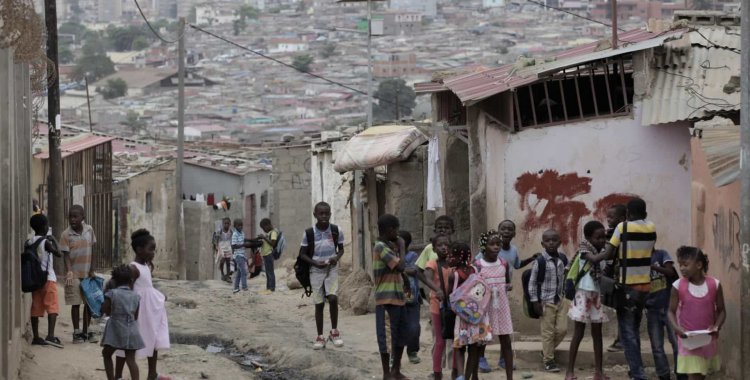"We have a problem in Angola: there is no authority to enforce what is decreed by the courts. Especially when the offender is the State itself, which closes its eyes to everything the court orders, even if there is a sentence in favour of the victims," lamented SOS Habitat coordinator André Augusto.
The NGO's chief pointed in particular to the case of Rufino António, a teenager who was killed by members of the armed forces in August 2016 when he was protesting a demolition action in a district in the Zango area, municipality of Viana.
Two years later, the court in Luanda sentenced the four military officers involved to between one and eighteen years' imprisonment, as well as compensation of one million kwanzas each to Rufino's relatives.
"The court was able to recognize that a barbarity was committed and condemned the military, the sentence was declared, but so far we have seen nothing," criticized the head of the non-governmental organization, regretting the lack of mechanisms to compel the payment of compensation.
SOS Habitat has followed over the years several cases of expropriation and demolition considered illegal, without warning or prior notification, involving the forced and violent expulsion of residents, in Luanda and other provinces, and currently has six lawsuits and two other cases still in preparation.
The case of the Areia Branca community, displaced in 2014 for an urban project to be developed by a company of Isabel dos Santos (Urbinveste), but which never came to fruition, is perhaps the most publicized, especially after the revelations that came to light in the investigation known as "Luanda Leaks".
"The government has committed serious human rights violations in that locality," says André Augusto, in connection with this eviction, which involved a fishing community of about 3,000 people, most of whom are now forced to live in an unhealthy neighborhood of shanty-towns near Luanda's new outskirts.
"The Angolan civil code consecrates usucapion and people conquer the right to space after an occupation of 15 years," says André Augusto.
Therefore, SOS Habitat filed, in November 2019, an action against the authorities, based on the violations of the law that were committed by the state: "the people were not notified, no alternative was given to challenge the demolitions, people were reduced from the minimum they had to zero. We demand that the authorities repair the damage and restore the dignity of those families".
André Augusto points out that the Constitution enshrines the right to housing and also regulates property rights.
In Angola, land is recognised as property originating from the State, which manages and administers it on behalf of the people, but access to and use of land is recognised for local communities.
"Our Constitution, the Magna Carta of the Republic of Angola, in number 15 says that compensation is the important element for the expropriation process to be effective. If there is no compensation and the lands are expropriated there is a serious violation of the law," stressed the coordinator of SOS Habitat.
The Constitution also provides for the Right to Housing in its article 85 and enshrines the right to community lands in article 37, he adds: "therefore all acts that have been carried out by the Angolan authorities are acts that go beyond the constitution itself, are illegal actions," summarizes André Augusto.







